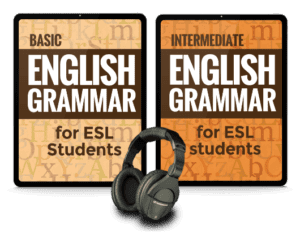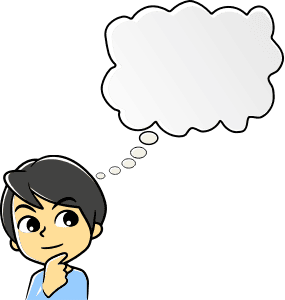

Helping verbs, also called “auxiliary verbs,” are verbs that don’t have a specific definition by themselves, but instead “help” the main verb of the sentence.
A lot of English learners make mistakes with helping verbs in English, so here’s a complete guide to using this type of verb!
Basic helping verbs:
Modal helping verbs:

Use a form of the word “DO” to ask questions:
Use DO with I, you, we, and they (in the present).
Use DOES with he, she, and it (in the present).
Use DID for all forms in the past.
Advanced tip: When asking questions in the past with WHY, WHERE, and HOW + DID, we often shorten the word “did” in spoken English.
Use DON’T, DOESN’T, and DIDN’T to form negative statements:
Avoid this common error: Using NO or NOT as the helping verb.

Use a form of the word BE to make the present, past, and future continuous tenses:
Present Continuous: AM, IS, ARE + -ing form
Past Continuous: WAS, WERE + -ing form
Future Continuous: WILL BE + -ing form
When you ask a question in the present, past, or future continuous, the word order changes and the helping verb comes BEFORE the subject:
Finally, use a form of the word BE to make the passive voice. Click here for a lesson on the passive voice.

Use a form of the verb HAVE to make perfect tenses:
Present perfect: Use HAVE (with I, you, we, they) and HAS (with he, she, it)
Advanced tip: In spoken English, we often shorten “he has” and “she has” to “he’s” and “she’s”:
Past perfect: Use HAD in all cases
Advanced tip: In spoken English, we often shorten “had” to ‘d
Future perfect: Use WILL HAVE in all cases
Again, when you ask a question with HAVE, the word order changes and the helping verb comes BEFORE the subject:

Now that you know how to use the basic helping verbs in English, let’s learn the modal helping verbs. Modal helping verbs modify the main verb by expressing necessity or possibility.
I can swim.
(I have the ability to swim)
We could go to the movies tonight.
(It’s possible for us to go to the movies tonight)
You can’t enter the restricted area.
(It’s not possible for you to enter that area)
He tried to call me, but he couldn’t get through.
(It wasn’t possible for him to speak to me)
We might go camping this weekend, depending on the weather.
(Maybe we will go camping, maybe we won’t)
I may go to the gym later, if I get off from work early.
(Maybe I will go, maybe I won’t)

If your head hurts, you should go to the doctor.
(I suggest that you go to the doctor)
He should see that movie – he’d like it.
(I recommend that he see the movie)
You must arrive on time for the exam, otherwise they won’t let you take it.
(It is necessary to arrive on time)
Advanced tip: In spoken English, it’s much more common to use “need to” and “have to” and “got to” (informal) for requirements instead of MUST.
I‘ll help you write the report.
(I promise to help you write it)
That software won’t work – it’s not compatible with the computer.
(It’s certain that the software will not work)
SHALL is similar to WILL, but it is typically only used in very formal English.
In spoken English, WOULD is often shortened to ‘d.

When you ask a question, the word order changes and the helping verb comes BEFORE the subject:
I can swim.
Can you swim?
Could we go to a movie tonight?
Yes, we could.
You should see that movie.
Should I see that movie?
I’ ll help you.
Will you help me?
I would give away a lot of my money.
What would you do?
Now you know how to use basic helping verbs and modal helping verbs in English! Can you make your own example sentences with each of these helping verbs?